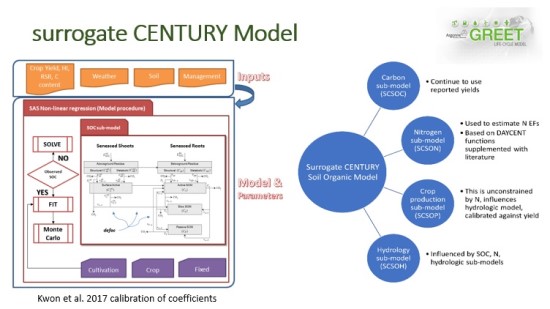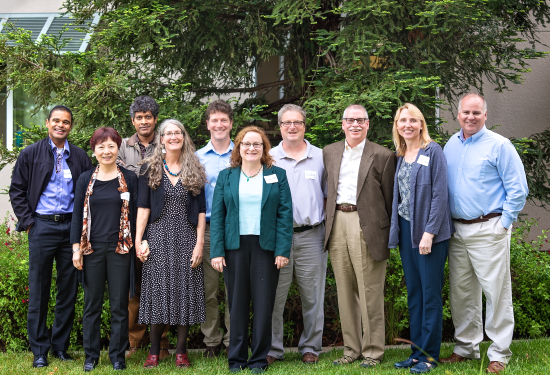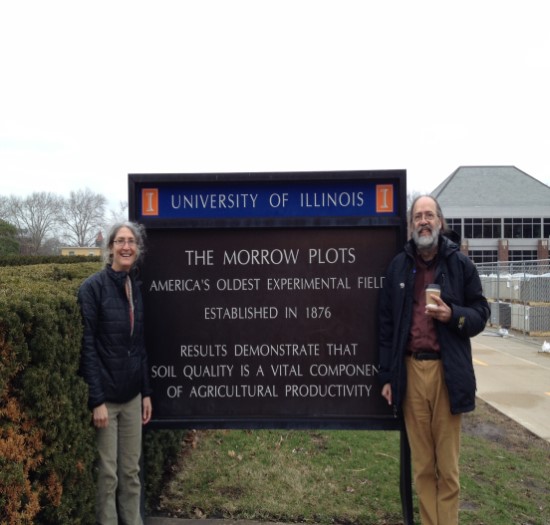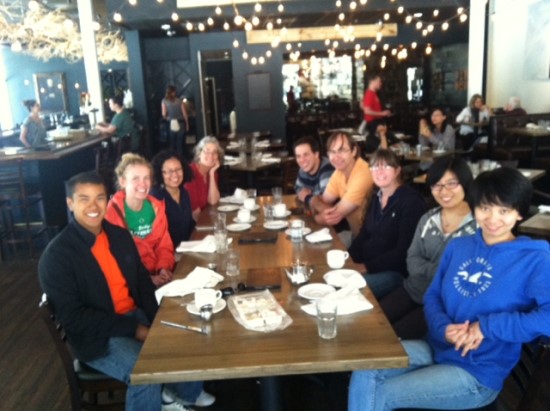Two NIFA grants (Rooting for Ecosystem Services & Being Particular about Organic Matter) will allow us to revisit farms that we sampled as part of the Illinois Soil Quality Initiative which was a multidisciplinary effort to develop accurate, practical, and meaningful measures of soil characteristics that farmers can incorporate in strategies to sustain soil resources […]
Postdoctoral Associate: Data Fusion Methodology for Land Use Change and Biofuel Production
Land-use change (LUC) in the form of agricultural expansion is a concern associated with the increasing demand for renewable fuels. It is a critical topic in the discussion of biofuel sustainability. Multiple data sources can be used to evaluate LUC and information from these data sources can be combined to obtain a more complete picture […]
Organic Decision Tools to Manage N for Production and Climate
Organic Transitions ILLU-875-62, 2015-2017 Our goals are to: Evaluate usability and utility of soil N calculators and models Develop affordable ways for farmers to initialize process models that feed decision support tools Develop the goCropghg app to allow organic farmers to estimate plant available N and greenhouse gas emissions on their farms We are leveraging goCrop™, […]
Why do we want soil sampling to suck?
Yes, this from is from a chat a student and I had with Dyson. No, it isn’t a cynical comment on the fiscal state of public universities. Dane and I were thinking about getting loose soil out of the hole in a reasonable way when it hit me .. We needed a Dyson V6. Motorhead!
Multifunctional Woody Polyculture
Illinois has gone NUTS with research on edible perennialized food systems. Check out the Woody Perennial Polyculture and the Multifunctional Woody Polyculture sites that are located on our campus’ South Farms.
Traina Lab Group Reunion to Celebrate Sam’s 60th
Had a great time celebrating Sam Traina’s 60th birthday and seeing my former lab-mates! My academic sibs and cousins are from left to right starting in the back row are: Gustavo Martinez, University of Puerto Rico, Satish Mynemi Princeton University, Ed O’Laughlin, Argonne National Lab, Doug Beek, EPA’s National Risk Management Research Laboratory, SAM (The […]
Lab group celebrating with ice cream
https://web.archive.org/web/20180830223412/http://michelle-wander.info/wp-content/uploads/2014/07/vimeo.jpg We are going to be sad to say goodbye to many friends as summer ends. Wander Lab Dishing Dirt See video!
Agriculture Evolving
It was a treat to visit the Morrow Plots with Ford Denison during his visit to campus to discuss his book “Darwinian Agriculture”. It was great fun to stand in front of this county’s oldest agronomic trial and ponder how to study perennial polycultures with Ford (former manager of LTRAS which UC Davis claims as […]
Summer 2013 Update
Lab lunch to celebrate the completion of field sampling and thank Ed Zaborski for all of his hard work finding fields
New Forms of Agriculture: Ordinary Practices, Public Depate and Social Critique
Am excited to be involved with a two-day international conference on “New Forms of Agriculture”, to be held Nov. 20 & 21, 2013, on the INRA/AgroSup/University of Burgundy campus. The conference focuses on the social and political aspects of alternative agriculture movements, public debates over the pros and cons of differently configured agri-food systems, and […]




